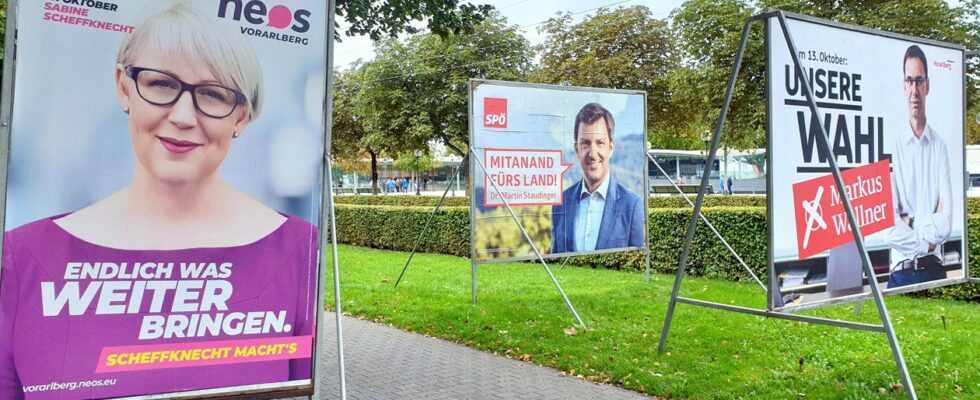Now it should be quick with the Vorarlberg party finance transparency: ÖVP and Greens have agreed on a draft for the new party funding law. A meeting with all parliamentary groups is to be fixed in May. When asked by the Austria Press Agency (APA), constitutional lawyer Peter Bußjäger from the University of Innsbruck described the draft as a “big step” within the framework of state competences. For the first time, a court of auditors will be given the power to audit parties, according to Bußjäger.
The goal of the governing parties is to pass the new law unanimously before the summer. The new regulation could come into force on January 1, 2023. At the same time, extended auditing rights for the state audit office are to be anchored in the state constitution. The rules are also to be extended to the municipal level. In terms of content, the package envisages shortening the election advertising period from four to three weeks. In addition, a maximum of 300 mobile election posters may be used in the future, of which a maximum of 50 will be large posters. The parties may spend a maximum of EUR 2.50 per eligible voter, plus an additional EUR 0.35 per eligible voter for the preferential vote campaign of individual candidates. The parties must submit an election campaign report within four months of the state election. All assets and liabilities of the state parties, including related organizations and associated companies, must be stated in the annual report. The statement of accounts must be checked by an auditor who may be appointed for a maximum of five years in a row. In future, the parliamentary groups will also have to report income from donations, advertisements and sponsorships in detail. Violations will be sanctioned by reclaiming the funding. According to the draft, the state government and the president of the state parliament can order this or offset it against future funding. If a party exceeds the upper limit for campaign costs, the excess amount must be paid back in threefold. The basis for this is a corresponding statement of facts by the State Court of Audit. Regarding the audit competence of the Court of Auditors, Bußjäger stated: “The state is definitely going to the limits of what the so-called constitutional autonomy opens up to the states in terms of possibilities. But I consider the regulation to be constitutional.” With regard to the party funding law, “extremely rigid regulations would be issued, especially as far as election advertising is concerned”. He assumes “that these are by far the strictest regulations in Austria”. NEOS club boss Sabine Scheffknecht told the APA that the draft will be examined in detail, especially with regard to the Court of Auditors’ competences. The SPÖ was open to talks. “We’ve been waiting for this for a long time, the law must come as soon as possible,” said Mandatory Manuela Auer. At the same time, the demand for an increase in the number of staff in the Court of Auditors remains valid. The FPÖ will also deal intensively with the draft. “The dog is buried in the details,” emphasized FPÖ club chairman Christof Bitschi. The speed with which the new law is now being worked on shows that the ÖVP is under massive pressure to act. However, that should not hide the fact that it is necessary to process the matter. It is the declared goal of the FPÖ that the Court of Auditors should be able to examine the processes in the ÖVP as quickly as possible. The city of Bregenz has already pushed ahead. The city council passed its own transparency package on Thursday evening, which obliges every campaigning group to give an account of the financial situation of the party. If there is income from donors, these must be named. A campaign cost ceiling was also set. A working group of the parliamentary groups will now develop a corresponding funding guideline. Campaigning groups who do not want to recognize the funding agreement by signing it will not receive any funding in the future.
source site-12
